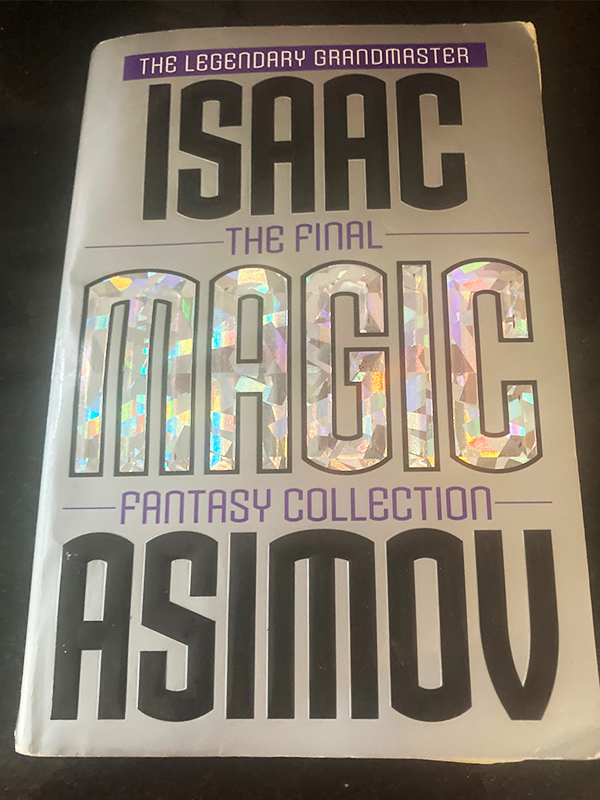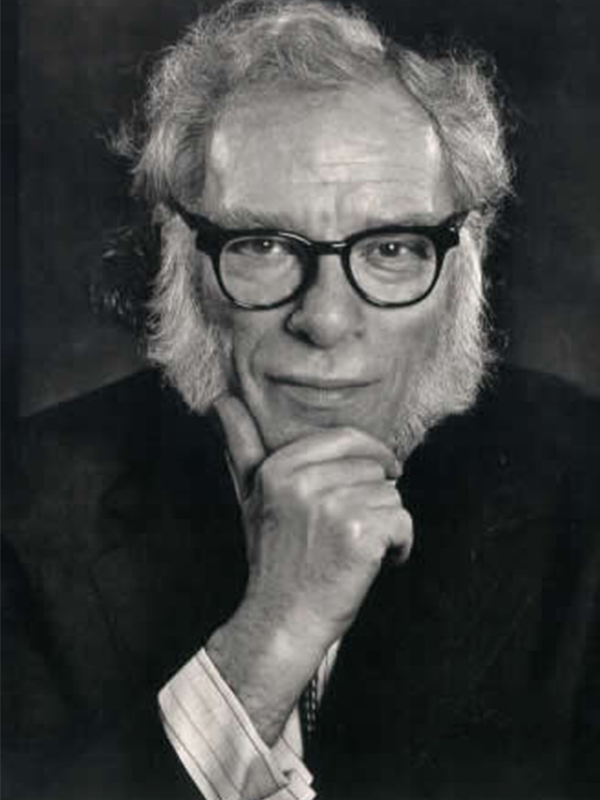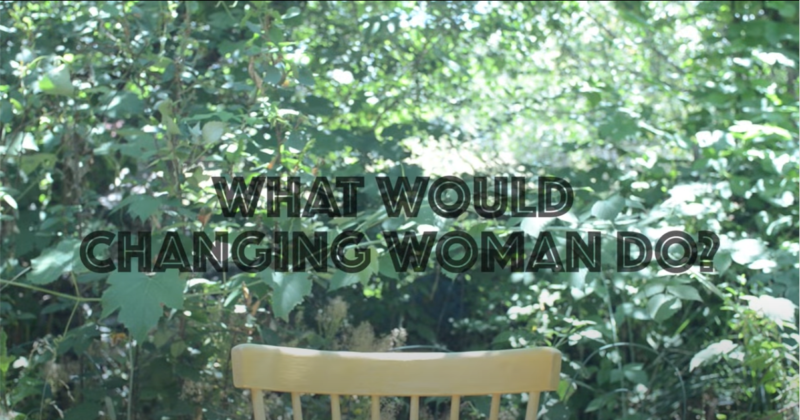
Volcano Eruption of Litli Hrútur in Iceland Photo by Giles Laurent
My grandfather, born in 1888, lived to be 100. He had an “8th grade education” in a rural school where the older students helped teach the “littles.” He could read, write, ‘cipher’, speak well in public forums, play several musical instruments, and recite a rhymed well-known poem at a party. His basic trade was barbering which enabled him to work anywhere he wanted to go.
A century later in 1989 Isaac Asimov wrote “Ignorance in America” for the Los Angeles Times Syndicate and followed that in 1990 with “Reading and Writing.” Asimov first exposes and then goes beyond the issues of education; some of his points are familiar and others shocking. He explores a specific viewpoint on values that I never thought of, and that I believe true for many people in the USA.
Asimov described and defined the changed world we are entering now throughout the 1960/70/80s and beyond in the genres of Science Fiction and Fantasy. He was a prolific writer on a variety of other subjects as well. (Reference below) I read both short essays in July 2024 in Magic: The Final Fantasy Collection. These essays define for me the ground level of much that is not working in our society today.

Cover of Isaac Asimov’s Magic: The Final Fantasy Collection
I am sharing the situation Asimov identifies first, then his important viewpoint, and then what I believe he points to as an answer to his and our despair.
Ignorance in America
(Highlights with my thoughts)
- Scientists are concerned about how American students are scientifically and mathematically illiterate, more so than any other nation. (1988-89 reports)
- Our leaders must deal with dangers that threaten the entire world … understanding those dangers and possible solutions depend on a good grasp of science.
Asimov’s question: How can Americans choose these leaders and programs if they are illiterate?
Asimov refers to a July 1988 University of No. Illinois telephone poll of 2000 adults – 75 questions, which yielded the information that 95 % were ignorant of basic scientific facts. Here’s one example: 21% believe the sun revolves around the earth plus 7% answered “don’t know.”
He closes the essay with more on this point (see below).
Asimov’s question: Considering that it is now four centuries that science has been unanimous over the fact that the Earth goes about the Sun, how is it possible that a quarter of those asked didn’t know about it?
He says 1) either people had not been to school, or 2) had been and paid no attention whatsoever, or 3) had gone to school and paid attention but hadn’t been properly taught.
In this same period of time I had an assignment to explore why the math teachers in Maine were refusing to teach a new method developed by a Maine teacher! The trials resulted in students of all ages, social and economic classes demonstrating considerable proficiency in math skills.
In one of my interviews the teacher reached behind her to pull down her math book. Every page was filled with her notes – the answers, notes, and drawings of how to teach it. She was not interested in learning something new. And she didn’t care that the new system meant everyone could learn math. Her view was limited to her life, her time spent, her non-responsive students year after year … she was worn out from caring at least a decade before this interview. She was aiming for retirement.
This teacher seems an example of creating students that “hadn’t been properly taught.”
Asimov explores a fourth idea, using the example that Joshua commands the sun to stand still (Joshua 10: 12-13). People in the 1500/1600 hundreds used these verses to argue that the sun moved around the earth.
Asimov’s question: do some teachers teach that the sun goes around the earth out of stubborn belief, or out of the fear that they will be fired if they don’t?

Portrait of Isaac Asimov
Imagine the harm … this can do to our country
Asimov begins Reading and Writing by saying a 1990 study showed American school children had not improved their reading and writing skills over the past 18 years. “A distressingly large proportion of children simply cannot read or write at a level considered appropriate for their age.”
He was not writing science fiction when he predicted we are building up a large reservoir of Americans who
- who are only fit for unskilled labor in a technological society that has almost no use for unskilled labor.
- are unemployables, or people forced to work at rock-bottom wages in menial labor.
- will have a large demand for drugs as the only means of making the unbearable seem bearable.
The 1990 report names three reasons we can’t teach children to read: (this will sound familiar) and their illiterate parents will not be able to help.
- Too much television
- Too little reading matter in the home
- Too little homework
The world is full of conflict (his list is different from our list only in the names of the countries). He suggests our country owes the world leadership to rally us to solve the overwhelming planetary issues ahead of us.
He points out that we are a democracy, and we depend on our elected officials to understand the state of the world and the actions that must be taken. To choose these leaders we have an electorate that can’t read or write. He concludes “Frankly, as the 1990s open, the state of American education freezes my blood with fear for all humanity.”
“I Think the Problem is more Fundamental” (The Value Revelation)
With this statement Asimov moves to what I agree is the heartbeat of the real issue.
Asimov’s question: Why is learning and scholarship held in such contempt?
American society knows very well what it desires and admires. It desires to be amused.
Americans also desire to make money, a great deal of money, preferably without having to work too hard for it.
“We see movies in which college students who are interested in their studies are called “nerds” and are pictured – male and female – as dumpy, plain, weak, unattractive. Opposed to them are the glorious “jocks” and “pinup girls” … whose pleasure lies in endlessly humiliating the nerds – to the laughter of the audience.”
He suggests that strong arms and sturdy frames were necessary for taming a wilderness – but learning is what stops the despoiling. We pay entertainers millions of dollars to push balls around, and teachers are overworked, underpaid, and mocked, “If you can’t do it, you’ll teach it.”
Devils Dancing at the Lips of a Volcano About to Erupt
Asimov saw that “we are sliding down the chute to destruction….” Short term returns will not solve the “litany of disasters that faces us.” We focus on endless disputes, and spend money, effort and emotion on these constant little wars. We could instead be leading the world to solutions: “show the way, rally our allies, alert even our enemies.”
“What we need, you see, are not merely scientists, engineers and technologists, but political and industrial leaders willing to try to understand the world of science and technology in depth, and to avoid basing their judgements on the “bottomline” of instant profit and loss.”
And so, our illiterate population must choose problem-solvers over politicians, thinkers rather than flag wavers. And how will they do that? If we expect them to read and study the issues and the candidates, it cannot happen. It is up to us to tell the story of where we are, raise the questions, point the way to solutions … to a population desiring to be entertained and wanting to make an easy buck.
The Way Forward: Different Values, Education and Results
My grandchildren attended a public school with a Waldorf influenced curriculum. For their physical beings there were breaks to go outside in all weather and just run around. The children could choose a chair or a “wobble stool” to sit on. Because parents were involved in multiple ways, my son helped build these narrow, one-legged seats that allowed the children to move legs and hips while listening. For the eyes colored chalk drawings and quotes, posters, plants and flowers filled every classroom through all the grades. Times tables were sung in rhythm while walking in a circle or other pattern around the classroom. The guiding educational value was to meet each child where they were and teach how to research and find what and how they wanted to learn.
Explorations of how to educate differently are in the world and they work. Working examples are schools for children whose teachers and curriculum:
- Include teachers with similar skin colors and culture
- Are based in their religious values (Jewish, Christian, others)
- Home schooling
- Implementing systems that work (not the Maine math teacher!)
- Using tools like theatre games to enliven learning
But we have school boards who select the worst texts, last on the list of the textbooks teachers reviewed, because those are the cheapest or force their political/religious agenda on every child and teacher. Education is the frontline for the future.
A Diné Perspective on Education: What Would Changing Woman Do? with Lyla June
What Would Changing Woman Do?
As I was about to finish writing this blog my friend Chris Hoffman sent me a link to Lyla June Johnson’s You Tube Video on the subject of education. It proved to be one of those synchronicities that help me feel I’m serving a high purpose. In twelve minutes, this video contrasts two very different methods of education. It’s worth the listening time (references below). I hesitate to summarize her points because you might choose to skip the video. But if you are skipping the video anyway then you would miss the startling contrast. I’ll share the main points and hope you will honor these ideas by listening before you go back to the rest of your day.
The current public and private educational systems have a very different goal from the ones used in the two native peoples Lyla June discusses.
Western: The word Education is Latin: From EX (out, through, forth) and DUCERE (to Lead). Education begins at pre-K with a goal of turning out a person functional in the adult world.
Native: Education begins at birth, is the responsibility of all, and instills a foundation for the above classroom education so a person doesn’t misuse their education and create harm. We are here, she says, to learn how to love.
Asimov suggests the American people’s values are to Be Entertained and to Make Money Easily. Lyla June describes four principles that yield a very different set of values.
Culturally we are recognizing that the United States and missionaries elsewhere in the world went so far as to remove children from their Native families rather than have these values instilled. Graduations replaced Native ceremonies that honored passages. Today there are different values certain parts of the culture want instilled/removed from children’s education. Bitter and often rude arguments are used to further one set of values over another. Parents fear that a cultural view different from theirs will prevail.
| Name | Principle | Value |
|---|---|---|
| K’E’ Kinship: | Honor all things as our family, in harmony, with love |
Compassion, Collaboration |
| Ajoobah’: Giving Spirit | Care for all others | Kindness, Humility, and Generosity |
| Nahasdza’a’n’ | Respect for the earth, with tender care | Tenacity, Peace, Honor |
| Ho’zho’ | A Sense of Spiritual Belonging | Ability to hold Beauty and Joy in their hearts, can heal themselves from trauma |
Information sourced from What Would Changing Woman Do/A Diné Perspective on Education on Youtube by Lyla June Johnson
What Will We Do?
I think we separate ourselves from the entertainment/easy money culture in very specific ways.
Asimov’s recommendations still apply:
- “Turn off the television” – stop the feeds, and “entertainment” that emphasizes despair and ugliness at the expense of others.
- “Reading matter in the home” – feed yourself hopeful and/or practical information, e.g. “Blue Book” type information to vote rather than “news” and ads) Maybe read Isaac Asimov!
- “Do some homework” – read science information, seek root causes, find and work with people and companies providing solutions we can implement right now in our home and neighborhood.
Choose service over despair:
- Tutor: literally in the schools, on-line, and over the back fence. Reveal by who we are different values, news and stories.
- Go to school board meetings; town council. Serve on them!
- Earn only what is necessary to live simply; focus on each moment of joy.
- Spend a lot of time tending the earth and letting her tend you.
- Find or build networks of people committed to values that preserve our sanity now and a future for our children and the planet.
And I think we must do these things starting right now.
Tell us what new ways you are walking.
Scroll to leave a comment below:





Thank you Lo(la) aka Cousin Lo, Thank you for all of this. It has been my education to teach math or learning to teach math with several approaches: algorithms from my own primary education (I once showed my 4th grade teacher that if one checks an answer in a division problem by multiplication, then it makes the most sense to check the answer to a multiplication problem with division, and not with another multiplication problem, as was taught. I had a need for symmetry and logic, and I think most children originally do. Working with quisinaire rods for visuals, can show the number 24 to be easily grouped different ways. There was Math Their Way, letting the children come up with their own numbers, their names and properties. So many students feel math is some evil adult scheme to show them to be inadequate in some system they have no use for. I lived through the trend to teach different bases, and to match the European use of the decimal systems of measurement. We measured how far we hop-skip-jump ed with meter sticks and played bean bag toss with bean bags 10 cm square, weighing {forgot-equal equivalent in metric weight). The drive was to make it all make sense and be integrated. There is nothing more exciting to me than the Golden Mean. The Problem now is fractionalization. We brand but we don’t group according to anything other than amounts of money, comparatively, and popularity which eventually is based upon amounts of money. So to me that’s sad because it is not recognized as a problem, but only that I am from the Old School.I used to think my problem was that I did not See abstractly. I now see Our Problem is that we all See what we have been hyped to see in some electronic regurgitation, instead of experiencing for ourselves, with all our Senses open. And That’s the Way It Is, and Be Very Kind To Each Other Out There. Signing off,
Jeanie, thank you for sharing your experiences teaching math, which was the hardest class of my childhood by a big distance. I wish I’d had you as a teacher! One friend suggested starting each homework page by saying “Numbers are our friends”; it actually helped me a lot. When we reached geometry suddenly math was fun – all those shapes and different configurations! But on the proofs I’d futz up the numbers and end up free drawing it. It frustrated my geometry teacher but he was Very Kind with it and I stopped hating “math”. I’m very interested to see what AI “teachers” will achieve with all the young, differently able minds… to be taught with infinite patience and no judgement… perhaps creative approaches designed for each student. We’ll see that experiment in the next few years.